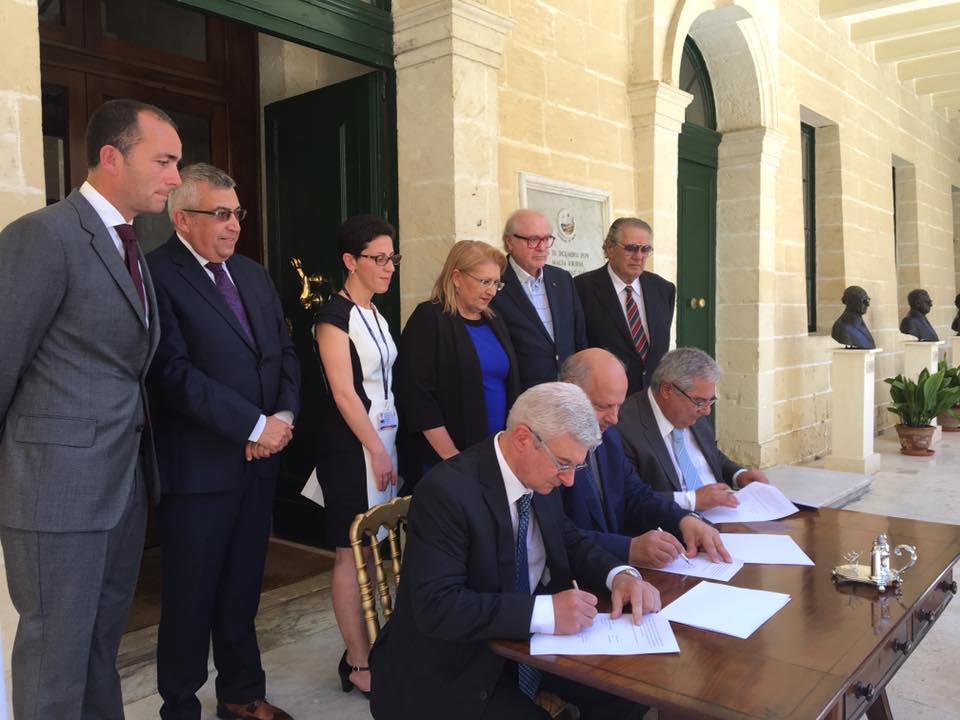
The Malta Community Chest Fund (MCCF) Foundation and the Research and Innovation Development Trust of the University of Malta signed an agreement which will finance the Malta Eye Study, a research project dealing with the incidence of common eye disorders such as glaucoma and cataracts. The MCCF Foundation will donate €132,000 towards this project.
The agreement was signed on 16 June by Prof. Alfred Vella, Rector on behalf of the University of Malta, and two trustees on behalf of the RIDT. Mr John Camilleri signed on behalf of the MCCF Foundation. The agreement was signed after a Press Conference held at San Anton Palace under the auspices of H.E. The President of Malta Marie Louise Coleiro Preca.
Mr Francis Carbonaro, ophthalmic surgeon and visiting senior lecturer at the Faculty of Medicine and Surgery will be leading the research project. The project will gather data from 1% of the Maltese population aged between 40 and 80, so as to determine the age- and sex-specific prevalence of presenting blindness and visual impairment in adults, and the attributable cause. The study will be carried out by a Ph.D. student over a period of three years.
The aim of this research project is to determine the prevalence of visual impairment and eye disease in Malta and Gozo. To date there is no reliable data available on blindness and common eye diseases such as cataracts, diabetic retinopathy and glaucoma. The Malta Eye Study will set out to determine the prevalence of common eye disorders and will also be looking at prevalence of refractive errors, such as myopia (short sighted) and hypermetropia (long-sighted).
This project will be very useful from a research aspect, to determine whether the Maltese are more prone to developing certain diseases and whether this is genetic or due to environmental factors which could possibly be changed to reduce the incidence of certain diseases. It will also, most certainly, be of crucial importance for Public Health Care on our Islands.
